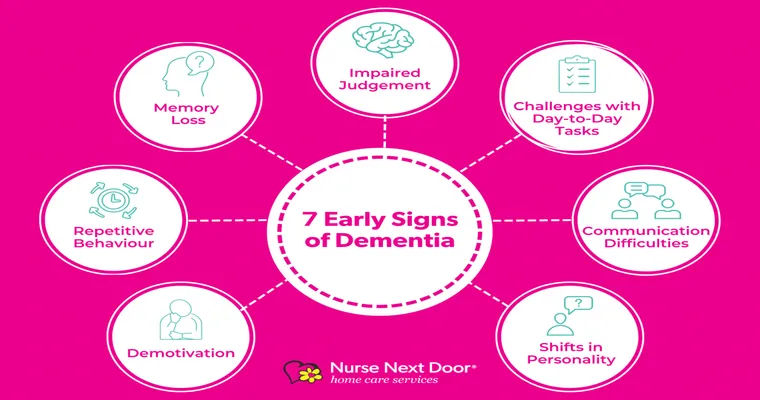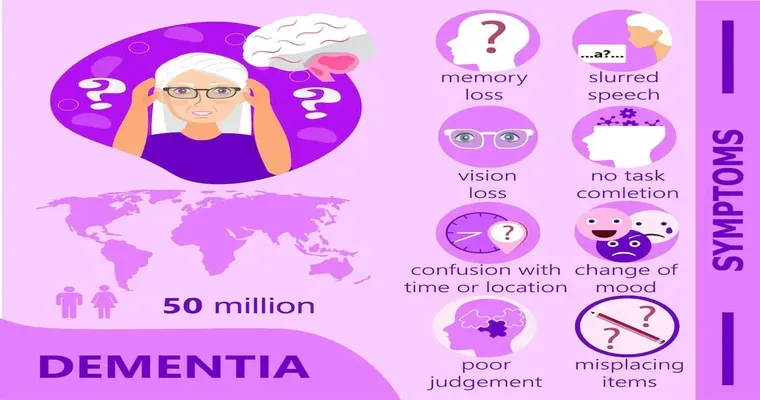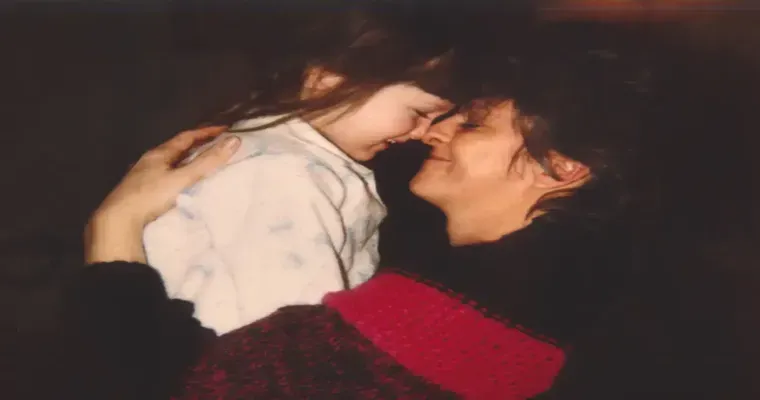Recognizing the "signs of early onset dementia" can be challenging, especially when the symptoms can be subtle and easily mistaken for normal aging or stress. If you find yourself questioning whether certain behaviors or cognitive changes are indicative of dementia, you're not alone. Many people experience confusion and concern about their loved ones' mental health. In this article, we will explore some of the most common "early signs of dementia", helping you identify whether it may be time to seek professional advice.
One of the first signs to watch for is "memory loss", particularly when it disrupts daily life. This is more than just forgetting where you placed your keys; it involves forgetting important dates or events, asking for the same information repeatedly, or relying heavily on memory aids. Another sign is difficulty with "problem-solving" or "planning". Tasks that were once second nature, such as managing finances or following a recipe, may become increasingly challenging.
Changes in "language" can also signal early onset dementia. Individuals may struggle to find the right words, repeat themselves, or have difficulty following or joining conversations. This can lead to frustration and withdrawal from social interactions. Additionally, if you notice a shift in "mood" or personality, it can be indicative of cognitive decline. Individuals may become confused, anxious, suspicious, or depressed, which can further complicate their relationships and daily functioning.
Visual-spatial issues are another common symptom. People may have trouble judging distances, recognizing faces, or navigating familiar environments. This can lead to an increased risk of accidents or getting lost, even in well-known places. Finally, a decline in "self-care" and neglect of personal hygiene can also be a red flag. If a loved one begins to lose interest in their appearance or neglects daily routines, it might be time for a deeper investigation.
If you or someone you know is experiencing these signs, it is essential to consult with a healthcare professional. Early diagnosis can lead to better management of symptoms and improved quality of life. Remember, while these symptoms can indicate early onset dementia, they can also result from other medical conditions, stress, or depression. Seeking professional help is the best way to determine the cause and to explore available options for support and treatment.
In conclusion, being aware of the "early signs of dementia" is crucial for timely intervention. If you are noticing memory loss, language difficulties, mood changes, visual-spatial problems, or a decline in self-care, do not hesitate to reach out for help. Understanding these signs can lead to better management and support for those affected, ensuring they receive the care they need.





